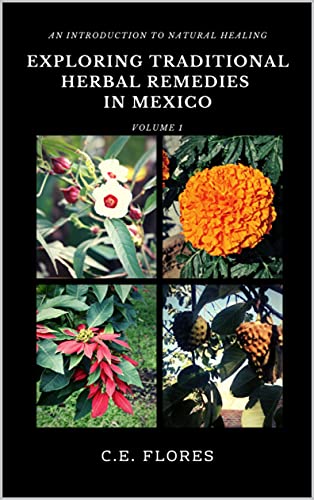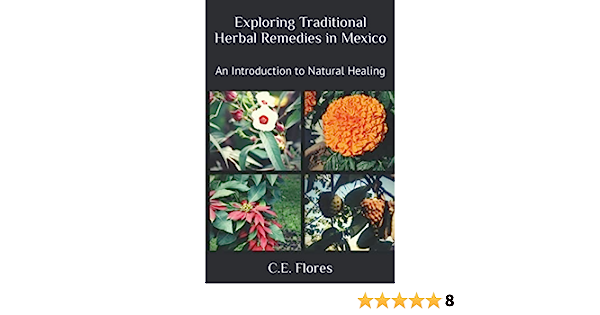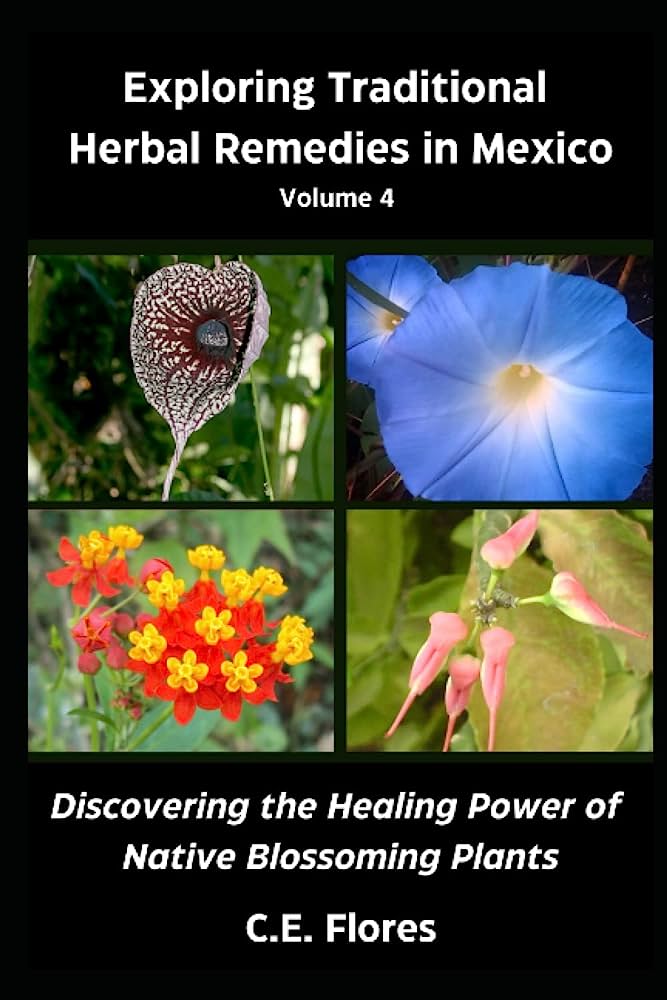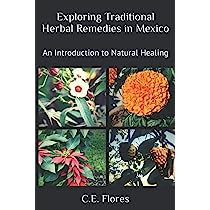Did you know that Mexico is not only famous for its stunning beaches and vibrant culture, but also for its rich tradition of traditional herbal remedies? That’s right! Mexico has a long history of using natural plants and herbs for medicinal purposes. In fact, many people believe that these traditional remedies have powerful healing properties that can help treat various ailments and improve overall well-being. If you’re interested in learning more about the healing powers of traditional herbal remedies in Mexico, then this article is for you!
In this article, you will discover the fascinating world of traditional herbal remedies in Mexico. We will delve into the different plants and herbs commonly used in Mexican folk medicine and explore their potential health benefits. From the renowned healing properties of aloe vera to the soothing effects of chamomile tea, you’ll learn about the diverse range of remedies that have been passed down from generation to generation in Mexican culture. Whether you’re curious about natural remedies for common colds, digestion issues, or even stress relief, this article will provide you with valuable insights and information. So, get ready to embark on a journey through Mexico’s traditional herbal remedies and unlock the secrets of natural healing!

Overview of Traditional Herbal Remedies in Mexico
Mexico is a country rich in traditional medicine practices, and herbal remedies have been an integral part of Mexican culture for centuries. Passed down through generations, these healing techniques have played a significant role in Mexican healthcare, offering natural remedies for various ailments. From boosting immunity to treating common ailments and promoting mental health, traditional herbal medicine in Mexico offers a holistic approach to wellness.
History of Traditional Herbal Medicine in Mexico
The history of traditional herbal medicine in Mexico dates back thousands of years. The indigenous cultures such as the Aztecs and Mayans relied on the abundant medicinal plants found in the region to treat illnesses and maintain overall well-being. These ancient civilizations had a deep understanding of the healing properties of plants and developed complex systems of herbal remedies.

Role of Traditional Herbal Medicine in Mexican Culture
Traditional herbal medicine has long been deeply rooted in Mexican culture. It is not just a form of treatment but also a way of life. Mexican communities often turn to traditional healers, known as curanderos or curanderas, who possess extensive knowledge of herbal remedies. These practitioners are highly respected and play an essential role in providing healthcare to their communities.
Importance of Traditional Herbal Remedies in Mexican Healthcare System
In Mexico, traditional herbal remedies are considered an integral part of the national healthcare system. It is estimated that a significant percentage of the population relies on traditional medicine for their healthcare needs. Recognizing the importance of these remedies, the Mexican government has made efforts to integrate traditional medicine into the modern healthcare system, ensuring access to both traditional and conventional treatments.

Herbal Remedies for Common Ailments
Treating Digestive Issues with Traditional Mexican Herbs
Mexican herbal medicine offers a range of remedies for common digestive issues such as indigestion, bloating, and stomach cramps. Plants like peppermint, chamomile, and ginger are commonly used to soothe the digestive system and promote healthy digestion. These herbs are often consumed as teas or infusions, which are known for their calming and healing properties.
Traditional Herbal Remedies for Respiratory Problems
Respiratory problems like cough, cold, and bronchitis can be effectively treated with traditional Mexican herbs. Plants such as eucalyptus, yerba santa, and mullein have long been used to relieve congestion, soothe irritated airways, and promote respiratory health. These herbs can be used in various forms, including teas, inhalations, or as ingredients in chest rubs.
Using Mexican Herbal Remedies for Skin Conditions
Traditional herbal remedies in Mexico offer a wealth of solutions for common skin conditions. Calendula, aloe vera, and tea tree oil are just a few examples of plants used to alleviate skin irritations, burns, cuts, and even acne. These natural remedies have shown to possess anti-inflammatory and antimicrobial properties, making them effective in promoting skin healing and maintaining healthy skin.
Traditional Herbal Remedies for Boosting Immunity
Immune-Boosting Plants and Herbs in Mexico
Boosting immunity is a top priority for maintaining overall health, and traditional Mexican herbal remedies offer a wide array of options. Plants such as echinacea, elderberry, and astragalus are known for their immune-stimulating properties and have been used for centuries to prevent and treat infections. These immune-boosting herbs can be consumed as teas, tinctures, or incorporated into daily meals.
Traditional Mexican Herbal Tonics for Strengthening the Immune System
Traditional Mexican herbal tonics, known as “tonicos,” are specifically formulated to strengthen the immune system. These tonics often combine various immune-boosting plants and herbs to create a potent and revitalizing remedy. Tonics such as reishi mushroom, ashwagandha, and cat’s claw are believed to enhance the body’s natural defenses and promote overall well-being.
Role of Traditional Herbal Remedies in Preventing Illnesses
Traditional herbal remedies in Mexico are not only used to treat existing illnesses but also to prevent them. Many herbs and plants possess preventive properties that help support the body’s natural defense mechanisms. Regular consumption of these herbs can help strengthen the immune system, reduce the risk of infections, and promote overall health and well-being.

Traditional Herbal Remedies for Mental Health
Calming Herbal Teas and Infusions
In addition to physical health, traditional herbal remedies in Mexico also address mental health concerns. Mexican herbal teas and infusions offer a range of calming properties to help alleviate stress, anxiety, and promote relaxation. Herbs like chamomile, lemon balm, and passionflower are known for their soothing effects on the nervous system, making them ideal for managing daily stressors.
Energizing Mexican Herbal Remedies for Stress Relief
Stress and fatigue can take a toll on mental health, and traditional Mexican herbal remedies offer effective solutions for combatting these issues. Adaptogenic herbs like maca root, ginseng, and rhodiola are known for their ability to increase energy levels, improve focus, and reduce the effects of stress. These herbs can be consumed in various forms, including teas, capsules, or powders.
Traditional Herbal Remedies for Enhancing Cognitive Function
Enhancing cognitive function is a goal for many, and traditional Mexican herbal remedies provide natural alternatives to support brain health. Herbs like gotu kola, bacopa, and ginkgo biloba have long been used to improve memory, concentration, and overall brain function. These herbs are often consumed as supplements or incorporated into daily meals.
Cultural Significance of Traditional Mexican Herbal Medicine
Spiritual Beliefs and Rituals Associated with Herbal Remedies in Mexico
Traditional Mexican herbal medicine goes beyond physical healing; it is deeply intertwined with spiritual beliefs and practices. Traditional healers often incorporate rituals, prayers, and cleansing ceremonies into their herbal medicine practices. These spiritual elements are believed to enhance the healing powers of the herbs and establish a connection between the patient, the healer, and the divine.
Herbal Medicine in Mexican Folklore and Traditions
Herbal medicine holds a prominent place in Mexican folklore and traditions. Stories and legends passed down through generations often include references to the healing powers of specific herbs and their role in cultural practices. Mexican communities celebrate the importance of herbal medicine through festivals, dances, and community gatherings that showcase the diverse and rich herbal traditions.
Herbal Remedies as Cultural Identity and Heritage
For many Mexicans, traditional herbal remedies are not only a form of healthcare but also a source of cultural identity and heritage. These remedies have been passed down for generations, deeply woven into the fabric of Mexican culture. They reflect the knowledge, wisdom, and resilience of indigenous communities and play a vital role in preserving cultural traditions and ancestral practices.

Sustainable Harvesting and Conservation of Medicinal Plants
Environmental Impact of Over-Harvesting Medicinal Plants in Mexico
As the demand for traditional herbal remedies increases, the importance of sustainable harvesting and conservation becomes crucial. Over-harvesting of medicinal plants can lead to their depletion, disrupt ecosystems, and threaten the biodiversity of Mexico’s natural habitats. It is important to implement practices that ensure the responsible gathering of medicinal plants to protect their availability for future generations.
Traditional Practices for Sustainable Gathering of Medicinal Plants
Traditional Mexican herbal medicine has always emphasized the importance of sustainable practices when gathering medicinal plants. Indigenous communities have long-standing traditions and knowledge of harvesting techniques that minimize the impact on plant populations. These practices often involve selective harvesting, allowing plants to reproduce and replenish themselves in their natural habitats.
Conservation Efforts to Protect Endangered Medicinal Plants
Various organizations and initiatives in Mexico are dedicated to the conservation of endangered medicinal plants. These efforts aim to protect the plants, preserve their habitats, and raise awareness about the importance of sustainable practices. Conservation strategies include establishing protected areas, implementing cultivation projects, and educating communities about responsible harvesting techniques.
Integration of Traditional Herbal Medicine into Modern Healthcare
Collaborations between Traditional Mexican Healers and Western Medical Practitioners
Recognizing the value of traditional herbal medicine, collaborations between traditional Mexican healers and Western medical practitioners have emerged. Integrative healthcare models combine the expertise of both traditional healers and modern medical professionals to provide comprehensive care. This collaborative approach allows for a more holistic and culturally sensitive healthcare system.
Challenges and Opportunities in Integrating Herbal Remedies into Modern Healthcare
Integrating traditional herbal remedies into the modern healthcare system comes with challenges and opportunities. Standardization, quality control, and regulatory frameworks are necessary to ensure the safety and efficacy of herbal treatments. At the same time, the integration of traditional remedies offers an opportunity to provide accessible and culturally relevant healthcare options to a diverse population.
Regulatory Framework for Traditional Herbal Medicine in Mexico
To ensure the safe and responsible use of traditional herbal medicine, Mexico has implemented a regulatory framework. The Federal Commission for the Protection against Sanitary Risks oversees the registration, licensing, and quality control of herbal products. This regulatory framework aims to safeguard public health while respecting the traditional knowledge and practices of Mexican healers.
Traditional Herbal Remedies as Economic Opportunities
Traditional Herbal Medicine as a Source of Livelihood in Mexican Communities
Traditional herbal medicine not only offers health benefits but also serves as a source of livelihood for many Mexican communities. Herbalists, farmers, and local artisans who cultivate, harvest, and produce herbal remedies contribute to the local economy. These traditional practices provide sustainable employment opportunities and support the preservation of cultural heritage.
Promoting Sustainable Herbal Entrepreneurship in Mexico
As interest in traditional herbal remedies grows, there is a need to promote sustainable entrepreneurship in the herbal industry. Supporting local communities and encouraging responsible cultivation and production processes can create economic opportunities while ensuring the long-term availability of medicinal plants. Sustainable herbal entrepreneurship benefits both the community and the environment.
International Trade and Export of Mexican Medicinal Plants
The international trade and export of Mexican medicinal plants have the potential to contribute significantly to the country’s economy. Mexico’s rich biodiversity and diverse herbal traditions make it a valuable source of botanical resources. However, it is essential to establish sustainable practices and promote fair trade to protect the environment and support the communities that cultivate and harvest these valuable resources.
Scientific Research and Validation of Traditional Herbal Remedies
Investigating the Efficacy and Safety of Traditional Mexican Herbal Remedies
Scientific research plays a vital role in validating the efficacy and safety of traditional Mexican herbal remedies. Through rigorous studies and clinical trials, researchers aim to understand the chemical composition, pharmacological properties, and potential interactions of these herbal remedies. This research bridges the gap between traditional knowledge and modern evidence-based medicine.
Collaborative Research Initiatives on Traditional Herbal Medicine in Mexico
Collaborative research initiatives involving traditional healers, scientists, and medical professionals promote the integration of traditional herbal medicine into the broader healthcare system. These initiatives aim to combine traditional knowledge with modern research methods, fostering a deeper understanding of the healing properties of Mexican plants and creating evidence-based guidelines for their use.
Traditional Knowledge and Intellectual Property Rights
Protecting traditional knowledge and promoting equitable access to the benefits derived from it is an important consideration in traditional herbal medicine. Intellectual property rights frameworks provide mechanisms to recognize the contributions of traditional healers and ensure the preservation of their cultural heritage. Respecting these rights contributes to the sustainability of traditional herbal medicine practices.
Public Awareness and Education on Traditional Herbal Remedies
Promoting Traditional Herbal Remedies through Educational Programs
Public awareness and education are crucial in promoting the understanding and acceptance of traditional herbal medicine. Educational programs and workshops can provide individuals with knowledge about the traditional uses of medicinal plants, their benefits, and safety precautions. By fostering awareness, society can embrace the value of traditional remedies as a complement to modern healthcare.
Raising Awareness about the Value of Traditional Herbal Medicine in Mexico
Raising awareness about the value of traditional herbal medicine in Mexico is essential to ensure its continued recognition and preservation. Public campaigns, media initiatives, and community outreach programs can highlight the cultural significance, health benefits, and economic opportunities related to traditional herbal remedies. By understanding their value, society can support their continued practice and integration into modern healthcare.
Incorporating Traditional Herbal Medicine in Formal Healthcare Education
Integrating traditional herbal medicine into formal healthcare education can bridge the gap between traditional healers and modern medical professionals. By incorporating knowledge of traditional remedies in medical curricula, healthcare professionals can gain a deeper understanding of cultural practices and provide more comprehensive care. This integration fosters respect for diverse healthcare traditions and improves patient outcomes.
Legal and Ethical Considerations in Traditional Herbal Medicine
Legal Framework Governing the Practice of Traditional Herbal Remedies in Mexico
Mexico has established a legal framework to regulate the practice of traditional herbal remedies. The General Health Law and the Law for the Promotion, Development, and Regulation of Traditional Medicine recognize the importance of traditional practices and provide guidelines for their safe and responsible use. These laws protect the rights of traditional healers, ensure quality control, and safeguard public health.
Ethical Issues in Culturally Sensitive Traditional Medicine Practices
Cultural sensitivity is essential when engaging with traditional herbal medicine practices. Respecting the beliefs, traditions, and knowledge of communities is paramount. Ethical considerations include consent, confidentiality, and avoiding cultural appropriation. It is essential to engage in open and respectful dialogue and collaborate with traditional healers to ensure ethical and culturally sensitive healthcare practices.
Protection of Indigenous Knowledge and Traditional Healers
Protecting indigenous knowledge and the rights of traditional healers is crucial for the preservation of traditional herbal medicine. Intellectual property rights frameworks, community-led initiatives, and collaborations between traditional healers and researchers can help safeguard indigenous knowledge and ensure fair recognition and compensation for their contributions. These efforts support the continued practice and transmission of traditional healing traditions.
Safety Precautions and Potential Risks of Traditional Herbal Remedies
Adverse Effects and Interactions of Traditional Mexican Herbal Remedies
While traditional herbal remedies offer numerous health benefits, it is important to be aware of potential adverse effects and interactions. Some herbs may cause allergies, interact with medications, or have adverse effects in certain individuals. Consulting with a healthcare professional or herbalist who is knowledgeable about traditional remedies can help identify potential risks and ensure safe and responsible use.
Quality Control and Standardization of Herbal Products
Ensuring the quality and standardization of herbal products is essential to guarantee their safety and efficacy. The Mexican regulatory framework includes measures to monitor and control the quality of herbal products. Manufacturers and distributors must comply with standards, conduct quality control tests, and provide accurate labeling to inform consumers about the content and dosage of herbal remedies.
Educating the Public about Responsible Use of Traditional Herbal Medicine
Public education plays a crucial role in promoting the responsible use of traditional herbal medicine. Informing the public about the importance of consulting with healthcare professionals or qualified herbalists, understanding potential interactions and risks, and following recommended dosage guidelines are essential for safe and effective herbal remedy use. Educating the public empowers individuals to make informed decisions about their healthcare.
Traditional Herbal Remedies in Combination with Modern Treatments
Integration of Traditional Herbal Remedies in Conventional Medical Settings
Combining traditional herbal remedies with modern treatments offers a comprehensive approach to healthcare. Integrative medicine models allow for the incorporation of traditional herbal remedies in conventional medical settings. This collaboration between traditional healers and medical professionals ensures patients have access to a wider range of treatment options that address both the physical and cultural aspects of their health.
Collaborative Approaches in Complementary and Alternative Medicine
Complementary and alternative medicine approaches emphasize the integration of traditional herbal medicine with various therapeutic modalities. Collaborative approaches involve healthcare practitioners working together to create individualized treatment plans that incorporate traditional herbal remedies alongside conventional therapies. This holistic approach addresses the diverse needs of patients and contributes to their overall well-being.
Exploring Synergistic Effects of Traditional and Modern Therapies
The combined use of traditional herbal remedies and modern therapies may offer synergistic effects and enhance treatment outcomes. Studies have shown that certain herbal remedies can enhance the efficacy and reduce the side effects of modern medications. Exploring the synergies between traditional and modern therapies opens new avenues for improved patient care and wellness across a wide range of health conditions.
Conclusion
Mexico’s traditional herbal remedies offer a wealth of healing potential, deeply rooted in cultural heritage and passed down through generations. From treating common ailments to boosting immunity, promoting mental health, and addressing a wide array of health concerns, traditional herbal medicine plays a vital role in Mexican healthcare. As society continues to explore the healing powers of these remedies, it is crucial to support sustainable practices, promote research, respect cultural traditions, and integrate traditional remedies into modern healthcare for the benefit of all.